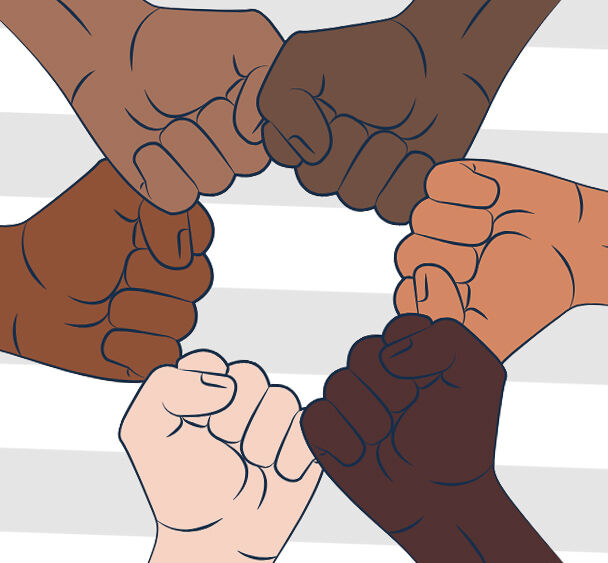Latinxs need to be allies and acknowledge transgressions for all African Americans in order to reach collective attainment and change in all institutions.
When it comes to recognizing struggles of people of color, it can be hard to figure out how to be an ally. The reality of these struggles are often mentioned in lectures of sociology, psychology and minority studies. Many times, a divide can be shown between black and Latinx people, especially when it comes to trying to fight for rights.
Texas State University prides itself on representing a significant percentage of minorities in its overall enrollment agenda. In fact, as of fall 2019, the rise in Hispanic enrollment is close to surpassing the White student enrollment percentage. The conversation of the Latinx community becoming an ally with all people of color starts here and now.
With protests for DACA recipients, Black Lives Matter, immigration and more, both sides actively acknowledge that there needs to be more representation and advocacy for all people of color. However, time and time again the Latinx community fails to realize trumping over the black communities struggles contributes nothing of value for either community and continues to uphold discriminatory institutions.
As an unfortunate public example, Jane the Virgin star Gina Rodriguez has been under flame for disregarding black women’s accomplishments when brought up in conversation. In trying to urge that more Latinas be represented in superhero films on Twitter, she failed to realize that Afro-Latin stars, like Zoe Saldana and Tessa Thompson, were major stars in Marvel films.
Comments like this disregard the accomplishments of Afro-Latin women who fall into both the Latinx and black community and ignore the growing diversity of major Hollywood films. While calling for fair representation is necessary, ignoring other accomplishments from women of color is deprecating.
Another issue that surrounds the Latinx community is colorism. According to the dictionary, colorism is “prejudice or discrimination against individuals with a dark skin tone, typically among people of the same ethnic or racial group.” Due to colorism, a lot of Afro-Latinxs can be disregarded and pushed aside since they are seen more as black instead of Latinx. Afro-Latinxs are more likely to face racism and other prejudices that might be shown in and out of the Latinx community.
Many women from different ethnicities have faced these prejudices due to their skin and other features. In an article from Oprah Magazine, more Afro-Latinxs are embracing their African roots. Seeing such progressive movements is incredibly refreshing, but they also have to come to terms with the fact that most Americans are unaware of the colorism and common struggles faced by the community.
Acknowledging Afro-Latinxs as a part of society is a step in trying to erase archaic stereotypes of who is considered Latin and who else should be represented when talking about reparations. This reality is something to keep in mind when talking about immigrants as well. According to the Pew Research Center, immigrants who are light-skinned, don’t face as much oppression as those with darker skin, immigrant or not.
By acknowledging and calling out anti-blackness, the Latinx community can further break down old systematic oppression that affects all people of color.
A recent announcement said that Jennifer Lopez will be performing at the 2020 Super Bowl despite the controversy around the decision since entertainers like Rihanna have turned down the opportunity to perform in support of Colin Kaepernick. Lopez defends her decision by saying this will give a platform for Latina women and to be able to send her own message, with rapper Jay-Z behind her, saying this will help the social justice act.
While it sounds like a big opportunity for representation of Latina women, many people wonder if this is a sell-out. The Latinx community went to Twitter and proclaimed that the representation does not matter if it is at the expense of black people, and that Lopez does not speak for all Latinx women. What the performance will entail and how it will help the social justice movement is yet to be known.
Anti-blackness exists in the Latinx community and it needs to be exposed in common conversation. A reinforced system of oppression is seen in all institutions today and it will not be dismantled unless everyone gathers on the same side and calls for change.
-Delilah Alvarado is a journalism senior
Opinion: The Latinx community needs to be an ally for all people of color
January 30, 2020
0
Donate to The University Star
Your donation will support the student journalists of Texas State University. Your contribution will allow us to purchase equipment and cover our annual website hosting costs.
More to Discover











